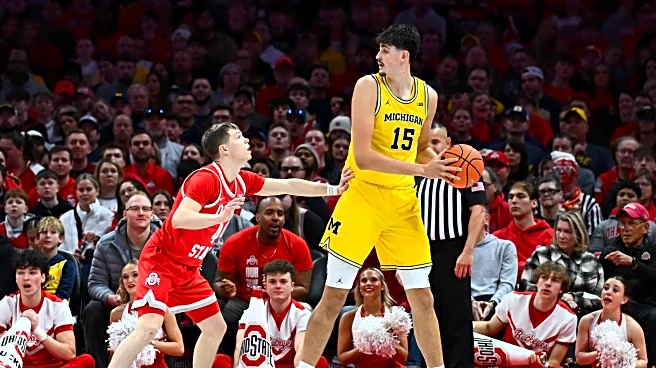What is the story about?
What's Happening?
The Philadelphia Eagles are facing significant salary cap challenges, with over $81 million in dead money impacting their financial flexibility. This situation has been described by NFL insiders as a 'house of cards,' potentially threatening the team's long-term stability. The dead money, which accounts for approximately 29% of the salary cap, is a result of strategic decisions made by the Eagles' management, including general manager Howie Roseman. Despite these challenges, the Eagles have managed to secure a Super Bowl victory, demonstrating the potential benefits of their approach. However, the team's ability to maneuver financially in the future may be limited.
Why It's Important?
The Eagles' salary cap situation is crucial for understanding the team's future prospects and strategic decisions. The high level of dead money restricts the team's ability to sign new players or make trades, potentially affecting their competitiveness. This financial strategy, while successful in securing a Super Bowl win, poses risks if not managed carefully. Other NFL teams may scrutinize the Eagles' approach, considering its implications for league-wide salary cap practices. The situation highlights the delicate balance between immediate success and long-term financial health, influencing how teams plan their rosters and manage contracts.
What's Next?
The Eagles will need to navigate their salary cap challenges carefully to maintain competitiveness. This may involve restructuring contracts, making strategic trades, or focusing on developing existing talent. The team's management will likely continue to monitor league trends and salary cap projections to optimize their financial strategy. Other teams may observe the Eagles' approach, potentially adopting similar strategies or advocating for changes in league rules. The NFL's ongoing discussions about salary cap integrity may lead to adjustments in collective bargaining agreements, impacting how teams manage their finances.

















